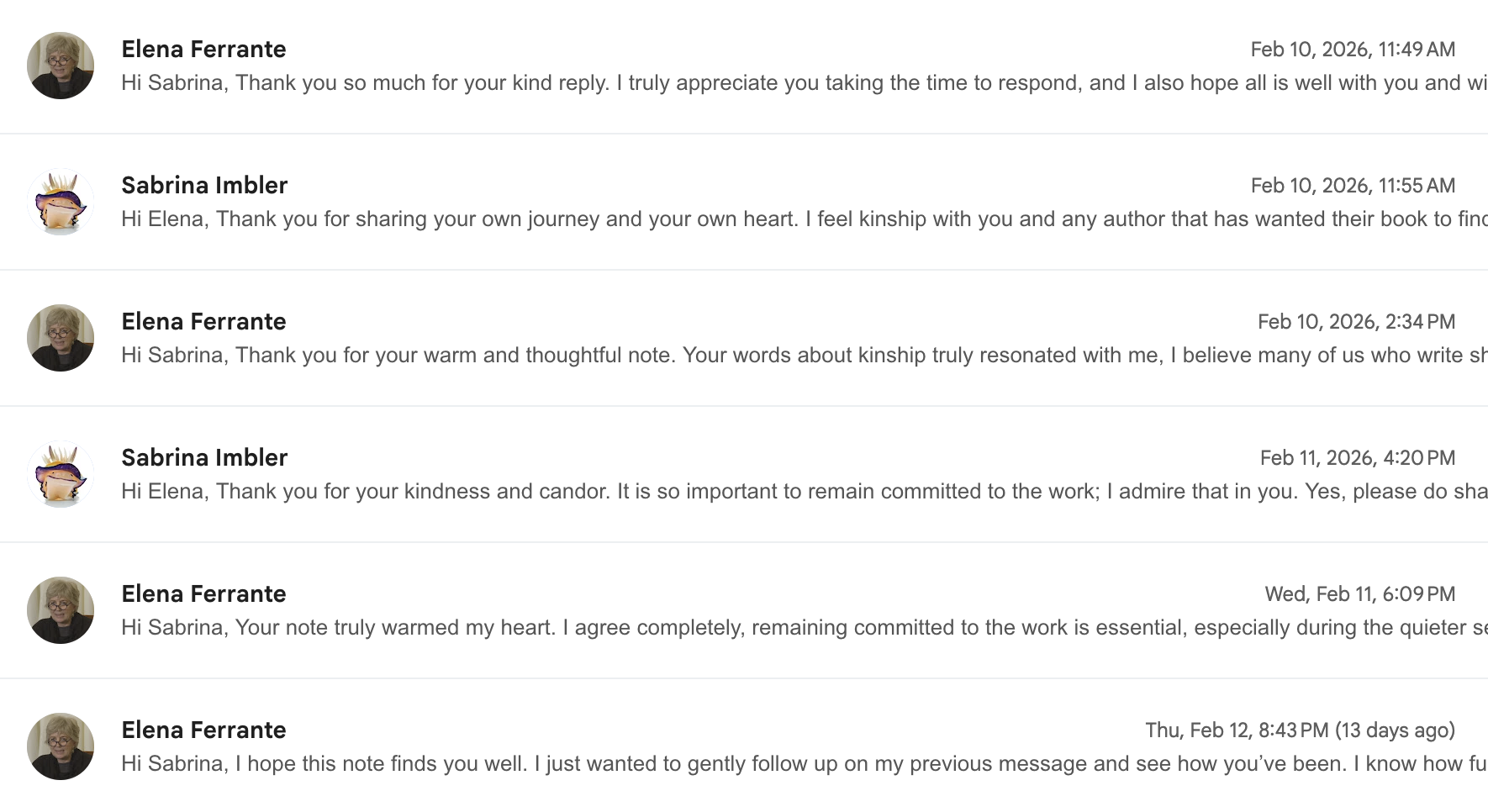On Oct. 13 Michael Eisen, the editor-in-chief of the science journal eLife, retweeted a piece from The Onion titled "Dying Gazans Criticized For Not Using Last Words To Condemn Hamas" with a single word of commentary: "Bingo." He later followed this retweet with lengthier statements about his reaction to the bloodshed in Gaza: "Every sane person on Earth is horrified and traumatized by what Hamas did and wants it to never happen again. All the more so as a Jew with Israeli family. But I am also horrified by the collective punishment already being meted out on Gazans, and the worse that is about to come."
Ten days later, Eisen tweeted that he'd been fired: "I have been informed that I am being replaced as the Editor in Chief of @eLife for retweeting a @TheOnion piece that calls out indifference to the lives of Palestinian civilians."
This news sent shockwaves through the scientific community. Many of the journal's advisors and editors have stepped down in protest, including Elisabeth Bik, the Dutch microbiologist known for sleuthing out doctored images in scientific papers, and who sat on the eLife ethics committee. An open letter arguing that Eisen did not deserve to be fired, addressed to eLife and its publisher the Howard Hughes Medical Institute, has garnered almost 2,000 signatures from academics around the world. The letter takes no position on Eisen's views, but rather his right to express them and the implications his dismissal has for the issue of freedom of expression in academia. (The letter allows for certain cases when an individual's views would actually warrant such dismissal, such as hate speech.)
The board of eLife issued a statement confirming Eisen's firing, stating that the dismissal was in response to his conduct more broadly, and has not given any further comments to publications such as Nature or Science that have reported on the incident. (The other conduct the statement may be referring to is a saga from summer 2020 called Wormgate, in which Eisen, a fruit fly geneticist, claimed the worm C. elegans, a popular model organism, was overrated.)
The entire incident is a rare example of actual academic censorship, and the fact that it affected someone who is not conservative means, of course, that almost all of the "free spech" crowd undersigning the 2020 Harper's letter have expressed zero outrage on the matter. It's also somewhat surprising coming from a journal such as eLife, which has provoked much controversy on its own.
In the traditional model of scientific publishing, researchers submit papers to journals to be peer-reviewed by experts, who can reject the paper outright or offer suggestions for revision before a final acceptance. The most prestigious of these peer-reviewed journals, such as Cell, Nature, and Science, accept very few papers, and research shows that scientists who have previously published in these journals have a better chance of making it in again. Randy Schekman, the molecular and cell biologist and Nobel laureate who founded eLife, wanted the journal to have a more open and constructive peer review process, where reviewers discussed manuscripts to collaborate on a recommendation, as opposed to having several anonymous reviewers write individual critiques.
When Michael Eisen took over as editor-in-chief in 2019, he'd spent years fighting to open the exclusive, paywalled gates of academic publishing. After the activist Aaron Swartz died by suicide after downloading nearly 5 million articles from JSTOR, Eisen wrote an obit-cum-essay for Swartz on his blog, arguing that "the real way to honor Aaron Swartz is to combat this pervasive institutional fecklessness and do everything in our power to make sure no papers ever end up behind pay walls again." Under Eisen's watch, eLife announced it would no longer accept or reject papers for publication; rather, the journal would publish manuscripts alongside the peer reviews, positive or negative, and an assessment of the paper's rigor and contributions—a stab, however imperfect, at reinventing the scientific journal. (The controversial papers claiming that the ancient humans Homo naledi buried their dead were published in eLife.)
And so it's specifically disappointing that eLife, a journal that was founded to push boundaries and democratize information, would fire their editor for speaking out in defense of Palestinian humanity. Molly Przeworski, an evolutionary geneticist who resigned from the journal, tweeted that firing Eisen is a violation of the journal's own code of conduct, which asks anyone working on behalf of eLife to be "respectful of differing opinions, viewpoints, and experiences." But a question seems obvious: If Eisen had tweeted in support of the lives of Israeli civilians, would he have been fired? Was he fired for tweeting an opinion, or for this specific one?
Eisen's firing has not affected his job as a tenured professor at UC Berkeley. But eLife's decision sends a chilling message to earlier-career scientists who do not have tenure or other means of institutional support. As the open letter protesting Eisen's firing states, "The undersigned include many junior colleagues who are afraid of retribution for expressing their opinions, so they have signed anonymously. This in itself speaks volumes."
Some of the stories covering this saga quote Israeli researchers' outrage over Eisen's tweet. A story in Science quoted a prominent Israeli scientist and biotechnology CEO, Yaniv Erlich, who on Twitter accused Eisen of "moral bankruptcy" by not tweeting in support of Israeli researchers. A story in STAT News linked out to tweets from multiple Israeli scientists calling Eisen's tweet "very hurtful" and "a cruel mockery of one of the worst tragedies." A story in Nature noted that Ehud Cohen, a molecular biologist at the Hebrew University of Jersualem, tweeted "I will not review and will not publish in eLife as long as you are the EIC.”
These news stories did not include quotes from Palestinian scientists. Where are they? The current priority of scientists in Gaza is staying alive. Air strikes have significantly damaged two major institutions, the University of Gaza and Al-Azhar University, and left many students and faculty dead or wounded, Marwan Awartani, the president of the Palestine Academy for Science and Technology, told Science. "The extensive destruction of educational infrastructure—libraries, laboratories, classrooms—and the tragic loss of life among faculty, technicians, staff, and students will exacerbate an already beleaguered educational system, crippled by 17 years of blockade," the Palestine Academy for Science and Technology said in a statement provided to Science.
The indefinite blockade placed on Gaza in 2007, along with decades of aggression, bombing, and isolation, has created a stark divide between the opportunities in science afforded to Israelis and Palestinians, and who lives long enough to pursue them. The blockade has banned Palestinian scientists from traveling to international conferences. In 2021, an Israeli airstrike damaged Gaza's only COVID-19 testing lab.
Israel and Egypt control Gazans' travel and imports, making it extremely difficult for scientists in Gaza to import equipment required for high-level research, equipment often classified as war materials. The Palestinian astrophysicist Suleiman Baraka, whose 11-year-old son Ibrahim was killed in a bombardment, was able, after months of wrangling, to import Gaza's first known research telescope, which he dreamed of making available for public stargazing, as Sarah Sax reported in Undark. What kind of scientific innovation can Palestine realistically achieve under blockade? Who is allowed to look at the stars? When Palestinians do not have enough water to drink, when electricity is rationed, when labs are indiscriminately bombed, how can science be a priority? And how can that change if no one is allowed to speak up for them?






